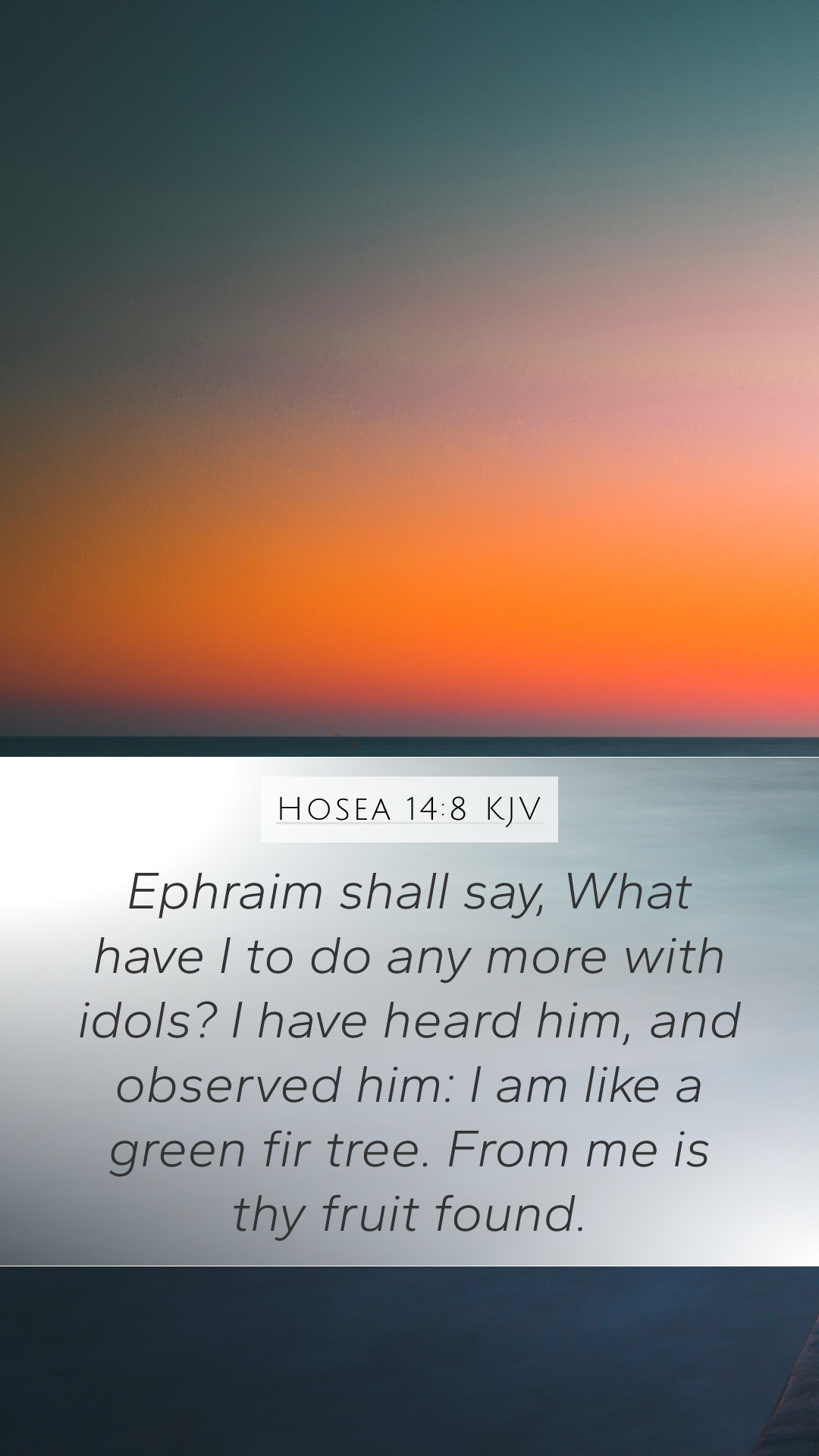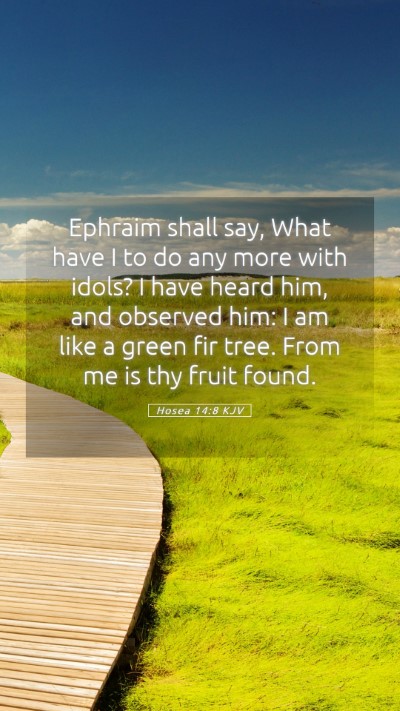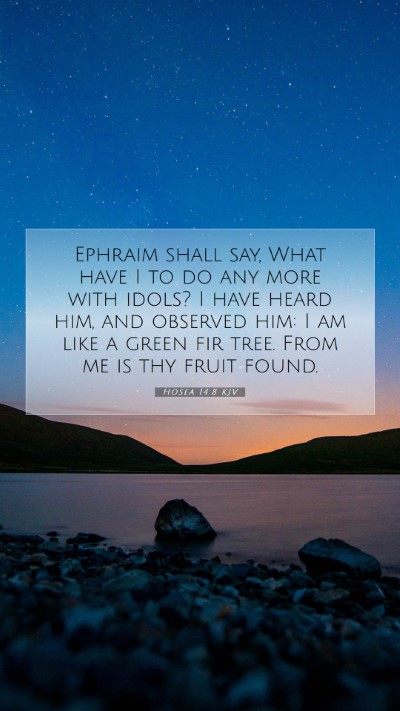Old Testament
Genesis Exodus Leviticus Numbers Deuteronomy Joshua Judges Ruth 1 Samuel 2 Samuel 1 Kings 2 Kings 1 Chronicles 2 Chronicles Ezra Nehemiah Esther Job Psalms Proverbs Ecclesiastes Song of Solomon Isaiah Jeremiah Lamentations Ezekiel Daniel Hosea Joel Amos Obadiah Jonah Micah Nahum Habakkuk Zephaniah Haggai Zechariah MalachiHosea 14:8 Meaning
What is the meaning of Hosea 14:8?
Ephraim shall say, What have I to do any more with idols? I have heard him, and observed him: I am like a green fir tree. From me is thy fruit found.
Hosea 14:8 Bible Verse Meaning
Understanding Hosea 14:8
The verse Hosea 14:8 states: "Ephraim shall say, 'What have I to do anymore with idols?' I have heard and observed him. I am like a green cypress tree; your fruit is found in me." This passage conveys a profound declaration of repentance and spiritual renewal. Below, we will explore the biblical meaning of this verse, integrating insights from various public domain commentaries.
Context and Background
The prophet Hosea speaks to the Northern Kingdom of Israel, primarily addressing the people of Ephraim. Throughout the book, Hosea uses vivid imagery and metaphors to depict Israel's unfaithfulness to God and the consequences of their idolatry. This verse appears at a turning point, where God promises restoration and healing if they return to Him.
Verse Analysis and Commentary
-
Repentance from Idols: Matthew Henry highlights that Ephraim’s acknowledgment of their practices with idols signifies a sincere turn towards God. The rhetorical question, "What have I to do anymore with idols?" indicates a profound realization of the futility and emptiness of idol worship. This reflects a theological assertion that true fulfillment comes only from a relationship with the living God.
-
Divine Restoration: Albert Barnes notes that God's promise to manifest His presence among His people is underscored here. The statement, "I have heard and observed him," signifies God's attentive nature to the repentance of His people. It highlights that God is not distant but deeply engaged in their spiritual journey.
-
The Metaphor of the Cypress Tree: Adam Clarke’s commentary brings attention to the metaphor comparing God’s people to a "green cypress tree." This symbolizes vitality, longevity, and the ability to bear fruit in contrast to the barrenness experienced during times of disobedience. It communicates that when one aligns with God, their life will flourish spiritually.
Biblical Exegesis of Hosea 14:8
The verse invites bible study groups to explore themes of repentance and renewal. By examining this passage, learners can discern how turning away from false allegiances leads to divine sustenance. The affirmation "your fruit is found in me" fosters an understanding of how God's presence produces fruitfulness in believers' lives, emphasizing the importance of remaining connected to Him.
Connections and Cross References
This verse resonates with several other biblical passages:
- Jeremiah 17:7-8 - Discusses trusting in God and the blessings that flow from that trust.
- John 15:5 - Jesus talks about being the vine and His followers being the branches, elaborating on the theme of bearing fruit through Him.
- Isaiah 41:18 - Expresses God’s promise of provision and fruitfulness for His people.
Application of the Verse in Daily Life
In understanding this scripture, individuals can benefit from applying its teachings to everyday life. Here are some practical insights:
- Identity in Christ: Embrace the identity of being 'in Christ' as a source of strength and vitality.
- Rejecting Idols: Cultivating an awareness of modern idols that compete for attention and aligning our focus solely on God.
- Fruitfulness: Engaging in activities and relationships that foster spiritual growth and produce positive outcomes.
Conclusion
Hosea 14:8 serves as a powerful reminder of the transformative power of repentance and divine connection. By approaching God's Word with diligence and utilizing bible study tools and resources, believers can deepen their understanding of scripture and experience the freedom and nourishment found in a relationship with Him.
Further Study and Exploration
For those eager to delve deeper into scripture analysis, consider exploring:
- Bible study plans focusing on the themes of repentance and restoration.
- Online Bible study courses that tackle the prophetic books, which include a robust examination of Hosea's messages.
- Bible study guides summarizing key themes and lessons derived from Hosea’s prophetic discourse.


